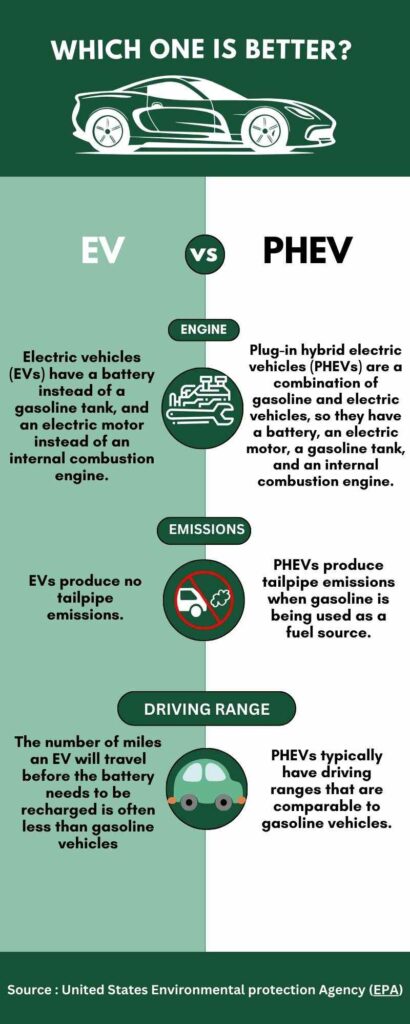Considering the mileage and environmental benefits, hybrid vehicles make an excellent choice for driving in cities, apart from the high initial cost, say experts.
Shadows of trees were covering the road. A white car slowly appeared, reflecting the light of morning sun. The number of the car was engraved on a green board, a perfect match to the trees. The driver slowed the car down, and parked it on the side of the road.
Manjunath has been driving an Electric Vehicle (EV) for two years. “Pollution is much less for electric vehicles. And hybrids are more efficient, in my experience,” he said, from the driver seat of his car, parked at Jayanagar.
Many like Manjunath have already switched to Electric Vehicles (EVs) or Plug-in Hybrid Electric Vehicles (PHEVs).

According to reports, hybrid EV sales in India reached an all-time high level of 22,389 in the first quarter of 2023 while 19,556 hybrid vehicles were sold in 2022.
A recent report by Mordor Intelligence estimated that hybrid vehicles’ market size in India will be $ 0.42 billion in 2024. As per the report, it is expected to be $1.28 billion by 2029, with a growth of 24.97 percent.The report shows the trend of increased growth of hybrids in Indian hybrid vehicle market. It also mentions the decrease in battery price, over the years.
Federation of Automobile Dealers Associations of India (FADA) reports showed a 45 percent increase in sales of EVs in India.
Shivaraman, a resident of Jayanagar, who currently owns a car brand Hyundai i10, is planning to switch to PHEV, “Fuel cost is low for EVs. PHEVs are great and give us more options. Plus, they give more mileage.” He said that the initial investment for buying EVs and PHEVs is high, which is delaying his purchase.
Deepak L, Regional Transport Officer (RTO), Bengaluru (Central) said that the mentality of people is the main reason for the preference of hybrid vehicles, “Initially people changed from petrol and diesel to EV. Now, preference is going to hybrid.”
Santhosh, Assistant professor, Automobile Engineering department at Dayananda Sagar college of engineering, said that compared to others, hybrid vehicles have more potential to conserve the fuel. “Mileage is more for those and whatever power is generated by the engine, it could be stored with the help of batteries. And whenever it is required, this power can be utilized to run the vehicle.”
Sumit, project manager in AVL India Private limited said that hybrids give people more options compared to EVs, “If they don’t find any place for plugging and charging, they can run the car using petrol.”
Deepak said that manufacturing of small diesel cars has almost eliminated. “The major reason for preference of EV was because the tax is zero in Karnataka. However, there is no tax exemption for hybrids,” he said.
A 2019 study done in Bangalore observed that 62 percent of the respondents agreed that they are aware about the fact that electric vehicles reduce emissions.

Santhosh, said that hybrids are convenient for those who use cars every day. “From the customer point of view, it will reduce the consumption of the fuel. If the quality of parts is good, it reduces the maintenance cost as well. Even though the initial cost is high, it can be recovered within two to three years,” he said.
He said that hybrid vehicle offers more mileage, and is efficient in all terrains. “In highways, almost all vehicles give high efficiency because of less disruption. But in city driving mode, the average speed is not exceeding more than 30 kilometers. Frequent stops and starts will be there, along with sudden acceleration and deceleration. So, it will consume more fuel, and the emissions will be more,” he added. In case of hybrid, battery will take over, thereby avoiding the burning of fuel and reducing emissions.
Madhukr, senior sales manager at Toyota, Bangalore, said that hybrids are relevant now, considering the Bharat Stage VI (BS-VI) emission norms.
BS-VI specifies the highest emissions standards for all major on-road vehicle categories in India.The Indian Ministry of Road Transport and Highways (MoRTH) proposed standards were in effect from April 1, 2020.
According to the International Council on Clean Transportation (ICCT), Euro 7 standards aims to limit the emissions from next generation combustion engine powered vehicles. It focuses on on-road emissions, compared to conventional laboratory emission tests. This is likely to lead to a further rise in sales of EVs and hybrids.




